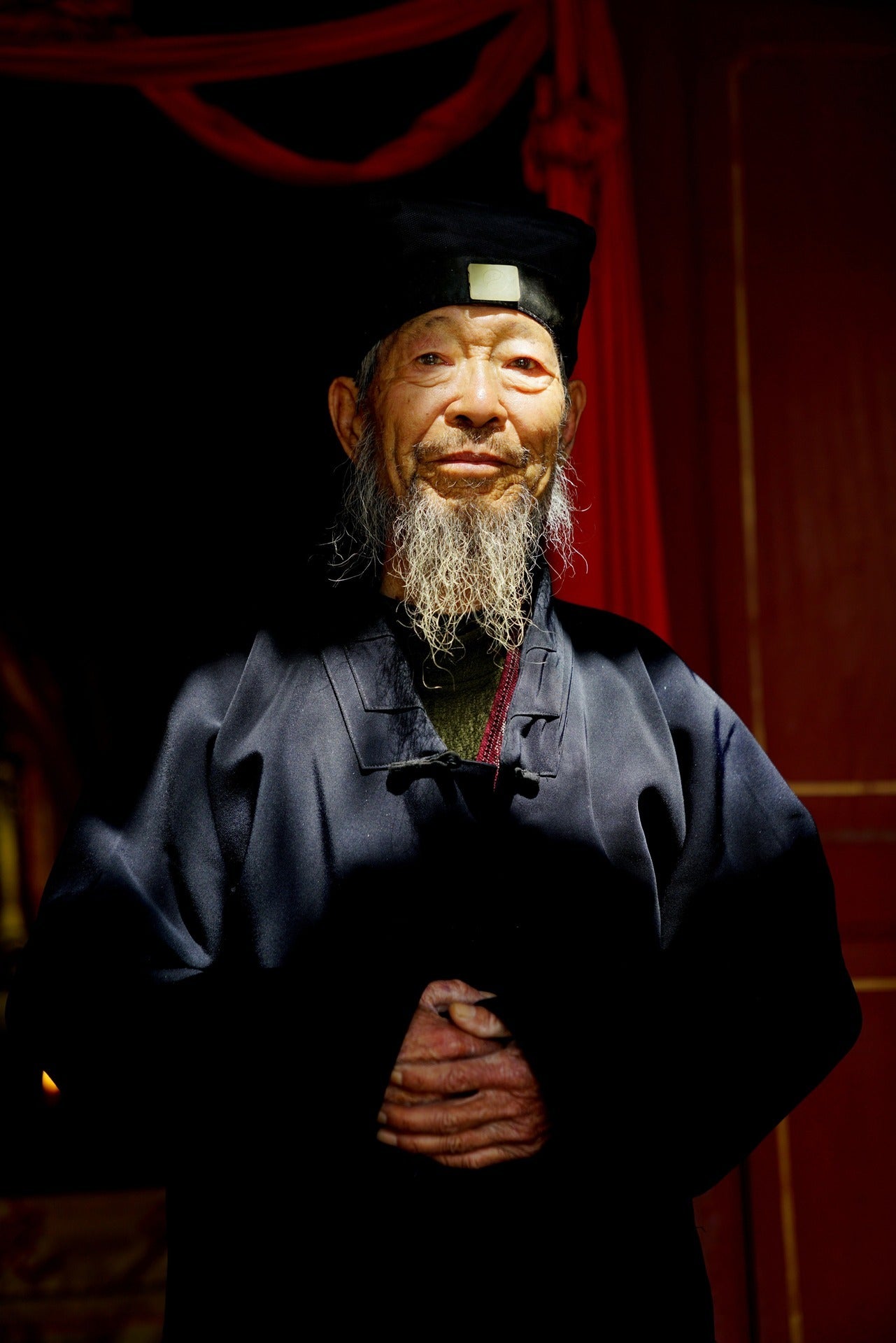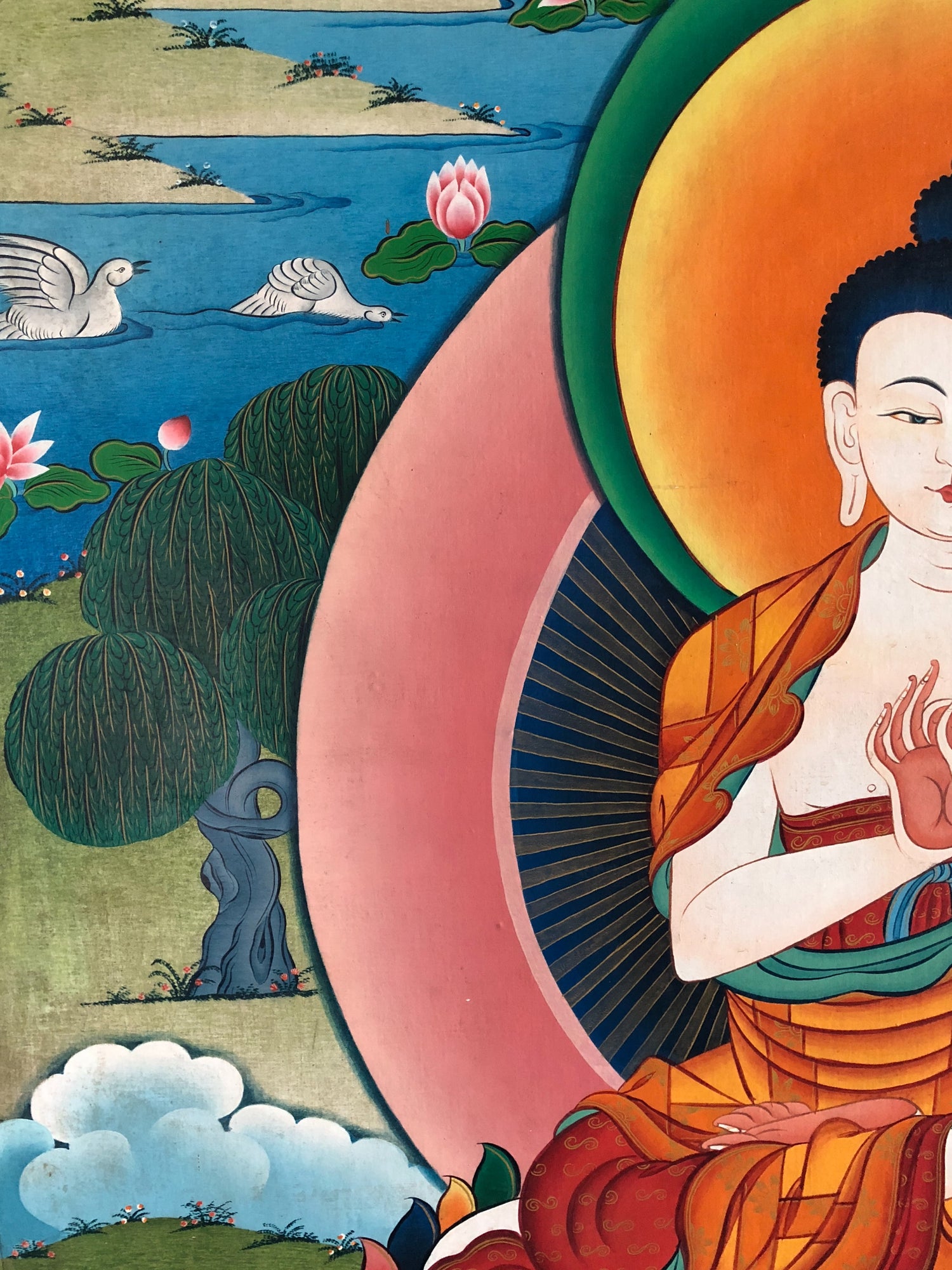12 Most Common Feng Shui Symbols & Their Meanings
MabgeFeng shui, known as Chinese geomancy in the Western world, is a system of principles that utilizes chi (qi) or energy flow to create harmony between individuals and their environment.
Feng shui has its origins in ancient China, deriving its name from the Chinese words fēng (meaning "wind") and shuǐ (meaning "water"). The concept is attributed to the Taoist mystic Guo Pu from the 4th or 5th century, mentioned in a passage of the now-lost Book of Burial.
It has been extensively employed to orient buildings in a manner believed to be auspicious.
Below are some of the most common feng shui symbols and their meanings.

The Most Common Feng Shui Symbols & Their Meanings
1. Pixiu or Piyao
Pixiu, also known as "piyao" in some contemporary interpretations, is a mythical creature from Chinese folklore that combines features of a Chinese dragon and a winged lion. Revered as powerful protectors, pixiu are associated with wealth and good fortune.
In feng shui traditions, pixiu are considered auspicious beings. They are believed to have a strong appetite for jewels, silver, and gold, and are thought to possess the ability to assist individuals who have encountered negative feng shui due to offending the Guardian God of the Year, Tai Sui.
Also read:
Pixiu Meaning: Symbol Of Protection, Wealth & Good Fortune
2. The Three Legged Money Frog
One of the most popular Feng Shui symbols commonly used in home decor is the Three-Legged Money Toad. It is believed that this wealth frog can attract prosperity and abundance into your home, but its placement is crucial. The toad should be positioned on an elevated surface, not on the floor, ideally in the wealth area of your home.
For further details on the placement and significance of the Three-Legged Money Toad in Feng Shui to enhance wealth luck, please refer to our previous article.
3. Bagua
The term "bagua" originates from the Chinese words "bā" meaning "eight" and "guà" meaning "divinatory symbols." It represents a motif that features the eight trigrams from the "I Ching," arranged in an octagonal pattern around a central symbol or mirror, symbolizing the balance between yin and yang.
In traditional feng shui, the bagua is utilized as a protective amulet believed to deflect and ward off "sha qi" or "poison arrows."
Baguas are typically positioned outside the front door, ensuring that the mirror always faces outward, away from the house.
Also read:
How To Use A Feng Shui Bagua Map In Your House
4. Yin & Yang (Yin-yang)
The yin-yang symbol is a circle featuring swirling black and white halves, each containing a dot of the opposite color. This symbol is rooted in ancient practices used to track the movements of the sun, moon, and stars.
Yin-yang is a fundamental Chinese concept that portrays opposite forces as interconnected and complementary. This dynamic balance is encapsulated in the concept of chi (qi).
Yin signifies feminine energy, darkness, passivity, absorption, and earth, while yang symbolizes masculine energy, light, activity, penetration, and heaven.
Also read:
Understanding The Yin Yang Symbol In Chinese Culture
5. Foo Dog
Fu dogs, also spelled as foo dogs, are alternatively referred to as shishi, komainu, guardian lions, lion dogs, and temple lions. These mythical creatures symbolize prosperity, success, safety, and guardianship or protection, often depicted in pairs—a male and a female.
Among the most renowned fu dogs are the Imperial Guardian Lions located in Beijing's Forbidden City.
6. Mandarin Ducks
Mandarin ducks are typically found in pairs and are considered a Feng Shui symbol of love. They are often used as a remedy to enhance love relationships and attract romance luck. Placing them in the love and marriage sector of your Bagua map is recommended, and alternatively, they can be positioned in your bedroom.
7. Lucky Fortune Cat
The fortune cat is widely recognized and utilized as an auspicious Feng Shui ornament believed to attract wealth luck. It is commonly found in offices, retail stores, and homes for this purpose.
8. Chi Lin
The Chi Lin, also known as the dragon horse or Chinese unicorn, is a mythical creature with the head of a lion, the body of a horse, and scales like a carp fish. It holds a revered status in feng shui, symbolizing prosperity, good luck, wisdom, and longevity.
The Chi Lin is believed to be fiercely loyal and protective of its owner.
9. Laughing Buddha
The Laughing Buddha, also referred to as the "Buddha of Wealth," is renowned worldwide for bringing abundance and happiness to homes and businesses.
It is believed that rubbing his stomach daily can grant wishes and bring them to fruition.
10. Wu Lou
Wu Lou, also known as a gourd or calabash, is a Feng Shui symbol representing perfect health, vitality, and longevity.
It is believed that Wu Lou enhances good fortune and promotes "healthy" energy. Considered a highly protective symbol, Feng Shui practitioners believe Wu Lou wards off various forms of negative energy.
Also read:
What Is Wu Lou & How To Use It For Good Health
11. Dragon
The dragon is one of the most recognized symbols in Feng Shui, revered as a charm for good luck and protection.
Among all animals in Feng Shui, the dragon holds the highest esteem, symbolizing good luck, abundance, and success. It also embodies assertiveness and represents powerful yang or male energy.
Also read:
How To Attract Luck With Feng Shui Dragon: Feng Shui Guide
12. Chinese Knot
The mystic knot, also known as the Chinese knot or endless knot, is an auspicious Feng Shui symbol formed by six intertwined infinity knots.
Symbolizing continuity and a long, happy life filled with good fortune, the mystic knot is often worn as an amulet to attract abundance, good luck, love, and protection.
Wrapping Up
Feng Shui principles have endured for millennia and continue to be widely embraced today. These symbols are utilized globally to attract wealth, prosperity, good health, love, and luck, promoting harmony and peace in people's lives. Feng shui has also gained popularity in the Western world, where many individuals incorporate its practices to enhance their homes, surroundings, and overall quality of life.













